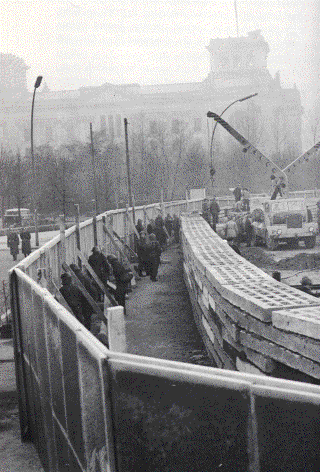|
After World War I, socialists and communists left the German Social Democratic Party and form new parties that wouldn’t be as weak as the part before the war. Several of these individuals got together and formed a more radical party called the Independent Socialist Party. There were also many movements to form a new form of government from radicals like including Rosa Luxemburg, Karl Liebknecht, Leo Jogiches, Paul Levi, Ernest Meyer, Franz Mehring and Clara Zetkin to establish the German Communist Party, the Kommunistische Partei Deutschlands (KPD). From here on communism held a slight hold in government, barely showing up on ballots at elections. Although the party seemed to thrive little by little there were still many organizations against the communists. The Freikorps for example was a prove army formed to defend the borders of germany against the possibility of a Red Army invasion. This army also happened to kill many communist figures in government when they would become violent and rebellious. Later communist party lost all power in the government when Adolf Hitler won the election and banned the KPD, sending all of the convicted communist leaders to jail.
 Communism made a comeback later in Germany’s history after World War II after the allies divided Germany into four parts. When the country was split, its lands were given to France, England, the United States, and the Soviets. When the U.S advised extending the Marshall Plan to Germany to keep inflation from occurring. This plan worked with West Germany but the Soviets refused to accept the reform and separated from the other three countries. In 1948, the Soviets proposed the Berlin blockade which blocked any transportation from West Berlin to East Berlin. The U.S airlifted supplies to the country considering that the people inside were starving and having trouble living. Later in the Sixties, the Communist group of GDR surrounded West Berlin and built a 25 km wall that was later demolished in 1990 when Germany reunited after the Unification Peace Treaty signed. After this Berlin was joined into one city and was named the capitol. Communism made a comeback later in Germany’s history after World War II after the allies divided Germany into four parts. When the country was split, its lands were given to France, England, the United States, and the Soviets. When the U.S advised extending the Marshall Plan to Germany to keep inflation from occurring. This plan worked with West Germany but the Soviets refused to accept the reform and separated from the other three countries. In 1948, the Soviets proposed the Berlin blockade which blocked any transportation from West Berlin to East Berlin. The U.S airlifted supplies to the country considering that the people inside were starving and having trouble living. Later in the Sixties, the Communist group of GDR surrounded West Berlin and built a 25 km wall that was later demolished in 1990 when Germany reunited after the Unification Peace Treaty signed. After this Berlin was joined into one city and was named the capitol.
|